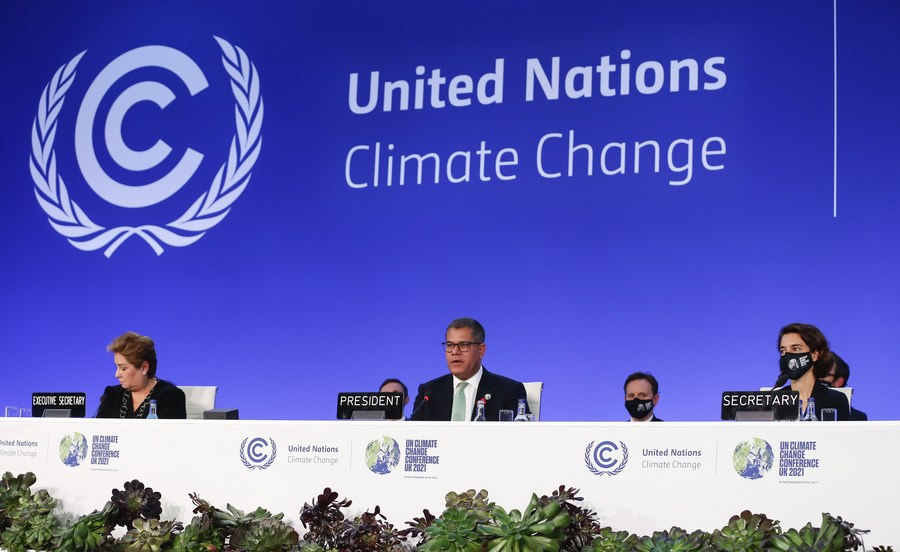Key climate change indicators break records in 2021: UN report
 0 Comment(s)
0 Comment(s) Print
Print E-mail Xinhua, May 19, 2022
E-mail Xinhua, May 19, 2022

Four key climate change indicators, including greenhouse gas concentrations, sea level rise, ocean heat and ocean acidification, set new records in 2021, a report from the World Meteorological Organization (WMO) said on Wednesday.
According to the WMO State of the Global Climate in 2021 report, the past seven years have been the warmest seven years on record, with 2021 being "only" one of the seven warmest because of a La Nina event at the start and end of the year, which had a temporary cooling effect but did not reverse the overall trend of rising temperatures.
The average global temperature in 2021 was about 1.11 degrees Celsius above the pre-industrial level, said the report. That's based on the 2015 Paris Agreement in which countries set long-term goals to substantially reduce global greenhouse gas emissions to limit the global temperature increase in this century to two degrees Celsius while pursuing efforts to limit the increase even further to 1.5 degrees Celsius.
The WMO report said that greenhouse gas concentrations reached a new global high in 2020 and continued to increase in 2021 and early 2022, as ocean heat was record high and ocean acidification intensifying, which threatens organisms and ecosystem services, and hence food security, tourism and coastal protection.
Global mean sea level also reached a new record high in 2021, at a rate of more than double that between 1993 and 2002, mainly due to the accelerated loss of ice mass from the ice sheets. Extreme meteorological hazards such as exceptional heatwaves, flooding, drought and hurricane raged across the globe, affecting ecosystems and displaced millions of population.
The WMO also warned that the compounded effects of conflict, extreme weather events and economic shocks, further exacerbated by the COVID-19 pandemic, undermined global food security. Of the total number of undernourished people in 2020, more than half, or 418 million, live in Asia and a third, or 282 million, in Africa.
In his video speech at the launch of the report, UN Secretary-General Antonio Guterres proposed five critical actions to jump-start the renewable energy transition, including greater access to renewable energy technology and supplies, a tripling of private and public investments in renewables and an end to subsidies on fossil fuels which amount to roughly 11 million U.S. dollars per minute.
The world must act in this decade to prevent ever-worsening climate impacts and to keep temperature increase to below 1.5 degrees Celsius above pre-industrial levels, he said.






Go to Forum >>0 Comment(s)